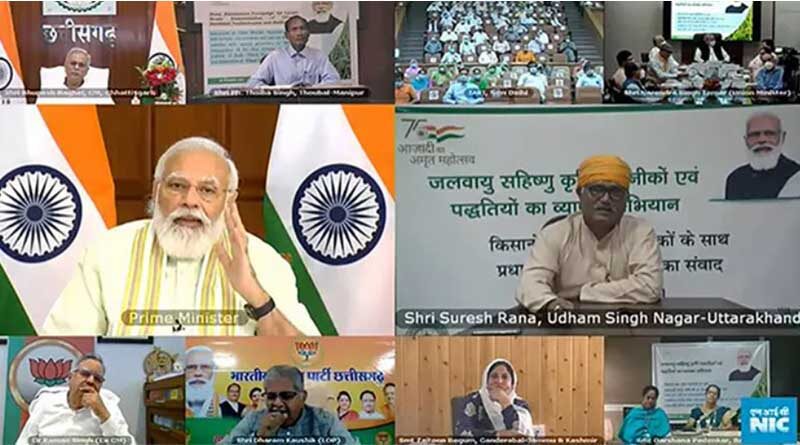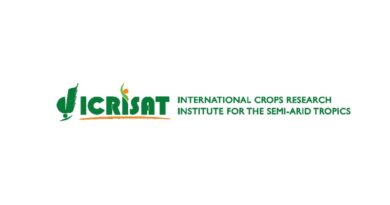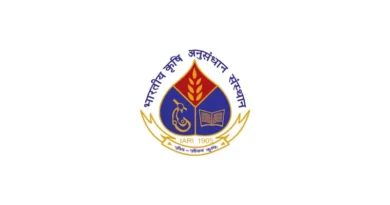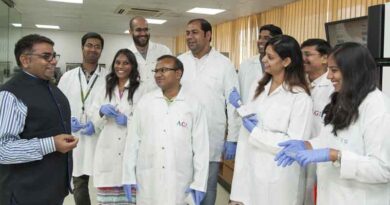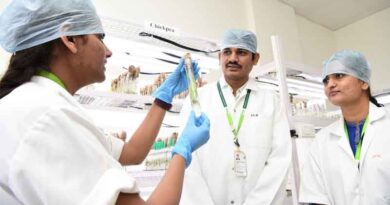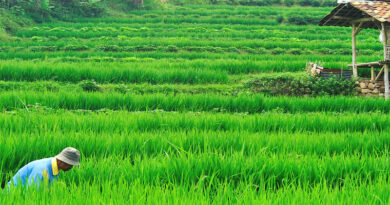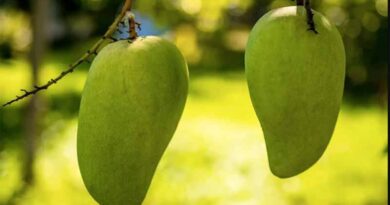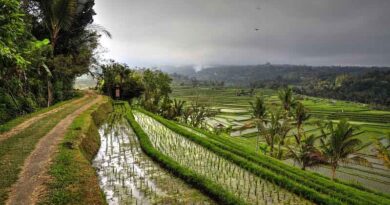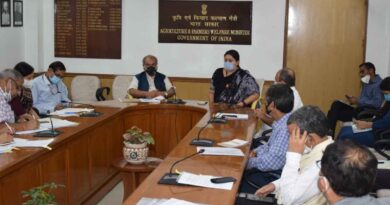ICRISAT’S advanced genomic technologies assist pearl millet and chickpea innovation in india
06 October 2021, New Delhi: Mr Narendra Modi dedicated to the nation 35 new crop varieties and hybrids of which three were the outcome of collaboration with ICRISAT. Genomics-assisted breeding led to the development of two chickpea varieties and one pearl millet hybrid. The cultivars are climate resilient, mature early, yield more and are resistant to major diseases.
Dr Rajeev K Varshney, Research Program Director – Accelerated Crop Improvement, ICRISAT, who contributed to the molecular mapping and genomics support for the development of these varieties, said, “Translational genomics has come of the age in ICRISAT crops. We are happy to see our national partners in India deploying genomics-assisted breeding in their crop improvement programs.”
Crop innovations contribute to food and nutrition security and better income for farmers.
Extra-early pearl millet with increased disease resistance and higher yield: More than two million people enjoy food security due to HHB 67 Improved in India. This extra-early (76 days to maturity), Downy mildew-resistant, farmer and consumer-preferred hybrid is grown in more than 800,000 ha out of the 7-7.5 million ha in which pearl millet is grown every year. This popular hybrid has helped prevent annual losses of US$ 8 million across Haryana and Rajasthan that mildew can cause.
However, the typical lifespan of any pearl millet hybrid is not more than 4-5 years before the disease catches up. The second cycle version of this hybrid (HHB 67 Improved 2 ) developed by Chaudhary Charan Singh Haryana Agricultural University (CCSHAU) and ICRISAT, released recently by the Indian Government has higher blast resistance by 12%, increased grain yield by 15% and dry fodder yield by 21% while retaining its hallmark early-maturity trait. This hybrid has the potential to enhance food, fodder, nutritional and economic security in the dry north and northwestern regions of India.
“We are excited to see a successful story of translational genomics and collaboration of the Indian Council of Agricultural Research (ICAR) and Chaudhary Charan Singh Haryana Agricultural University (CCSHAU) with ICRISAT in developing HHB 67 Improved 2. We look forward to stronger ICRISAT- ICAR collaboration to enhance pearl millet production in the dry zones of India,” said Dr Tara Satyavathi, Coordinator, ICAR- All India Coordinated Research Project on Pearl Millet.
Drought-tolerant and wilt-resistant chickpea varieties: Drought alone causes up to 60% annual yield losses in chickpea in India. ICRISAT, in collaboration with the Indian Council of Agricultural Research (ICAR), has been leading the efforts for genetic dissection of drought tolerance and Fusarium wilt resistance in chickpea using the most advanced sequencing and genotyping technologies at its Center of Excellence in Genomics and Systems Biology (CEGSB).
Also Read: Indian Agrochemical sector faces disruption in raw material supply from China
The drought-tolerant variety Pusa Chickpea 4005 (BGM 4005), developed by ICAR-Indian Agricultural Research Institute (IARI) in collaboration with ICRISAT has 14.76% and 11.9% overall mean yield advantage over parental varieties. It is suitable for cultivation in the North West Plain Zone covering Punjab, Haryana, plains of Jammu and Kashmir, parts of Rajasthan and western Uttar Pradesh. Dr Shailesh Tripathi, Principal Scientist, ICAR-IARI and lead developer of the variety said, “We from ICAR- IARI in collaboration with ICRISAT’s Center of Excellence in Genomics & Systems Biology and funding support from the Department of Biotechnology (DBT), Government of India have successfully deployed translational genomics for developing Pusa Chickpea 4005.”
The Fusarium wilt resistant variety IPCMB 19-3, also called Samriddhi, developed by ICAR- Indian Institute of Pulses Research (IIPR) has a mean yield advantage of 30.3% over its parent variety. It is suited to the agro-ecology of the Central Zone covering Madhya Pradesh, Maharashtra, Gujarat and Bundelkhand region of Uttar Pradesh in India. The lead developer of the variety and Principal Scientist at ICAR-IIPR, Dr Aditya Pratap said, “Development of the Samriddhi variety with higher yield has been possible due to excellent collaboration with ICRISAT’s CEGSB and financial support from ICAR and DBT.”
Dr Jacqueline Hughes, Director General, ICRISAT, while congratulating scientists who had collaborated on the development of the new cultivars said, “We are pleased with this development and committed to such innovations in crop improvement programs that support smallholder farmers in India and elsewhere.”
Dr Arvind Kumar, Deputy Director General-Research, ICRISAT, said that these releases validate ICRISAT’s role in working with National Agricultural Research Systems and State Agricultural Universities to deliver new varieties at a faster pace and contributing to the national agenda for the welfare of farmers.
ICRISAT scientists Dr Rakesh K Srivastava, Principal Scientist – Molecular Breeding, Genomics & Trait Discovery and Dr Manish Roorkiwal, Senior Scientist – Genomics and Molecular Breeding, Forward Breeding contributed to the development of the new pearl millet hybrid and chickpea varieties, respectively.

